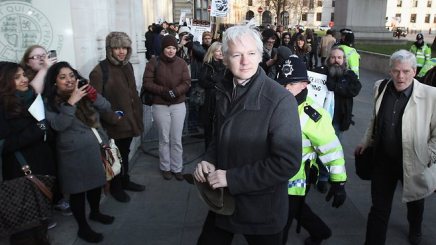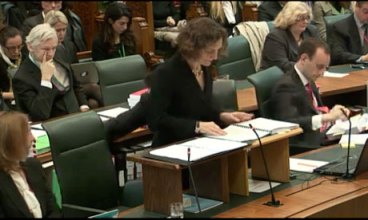Assange loses his appeal, but gets to stay (at least for 14 days)
Julian Assange’s appeal was dismissed by the Supreme Court yesterday morning at around 9.18 or so.
The strange thing about this loss—for those who haven’t been following the legal ins-and-outs of the case—is that it’s not yet happened. In effect, the consequences of the judgment have been stayed for 14 days. During that time, Assange and his legal team will decide whether they want to apply for a very unusual legal step, the reopening of the case.
Apparently it’s only happened once before, and then in truly unique circumstances. That was the Pinochet (No. 1) (of three) decision taken by the House of Lords in 1998. That case was reopened at the urging of Claire Montgomery QC—counsel for the Swedish prosecutor in the Assange case—in light of Lord Hoffman’s links to Amnesty International, one of the third-party interveners.
This would be only the second time this rare device has been raised in the UK’s highest court.
To be sure, it’s probably just one last ditch attempt to prevent the inevitable by the Assange camp. Chances are that he’s going to be catching a plane to Sweden at some point quite soon (and, indeed, why not: there’s no clear reason why he shouldn’t face his accusers). But there is a potentially important principle at the heart of this, and it is particular to the type of adversarial adjudicative system that we enjoy in this country.
The seven judges in this case appear to have partially decided it by reference to a point based on the 1969 Vienna Convention on the Law of Treaties. In itself it is an unobjectionable point. The Vienna Convention is a widely-ratified treaty governing how treaties, in general, are to be interpreted (amongst other things). The points that emerge from its provisions are also not likely to be controversial: it has been the subject of numerous judicial opinions over the years in many different countries and jurisdictions, and its meaning is made quite clear by the supporting treaty commentaries.
Nevertheless, Dinah Rose QC—Assange’s barrister—made the point that it hadn’t been addressed during the oral hearing. For a judge to rely on something that he has not given the parties the chance to talk about, under our system, is not the way things work. The judge may have got it wrong and with the aid of counsel—that word being especially appropriate—he might be corrected. It is a different system than the one adopted by continental civil law systems that typically use an inquisitorial method of judicial decision-making. A downside is that it means that the parties define the scope of the case. And the upside, ironically enough, perhaps, is that the judge doesn’t get to decide its scope.
The Supreme Court, in a case this sensitive, may want to reopen the matter to prevent any appearance of unfairness. Whether they will be willing to change what sounds like a settled opinion is much less likely. One thing that is clear is that, for now, Mr. Assange will be staying with us for a little longer.

